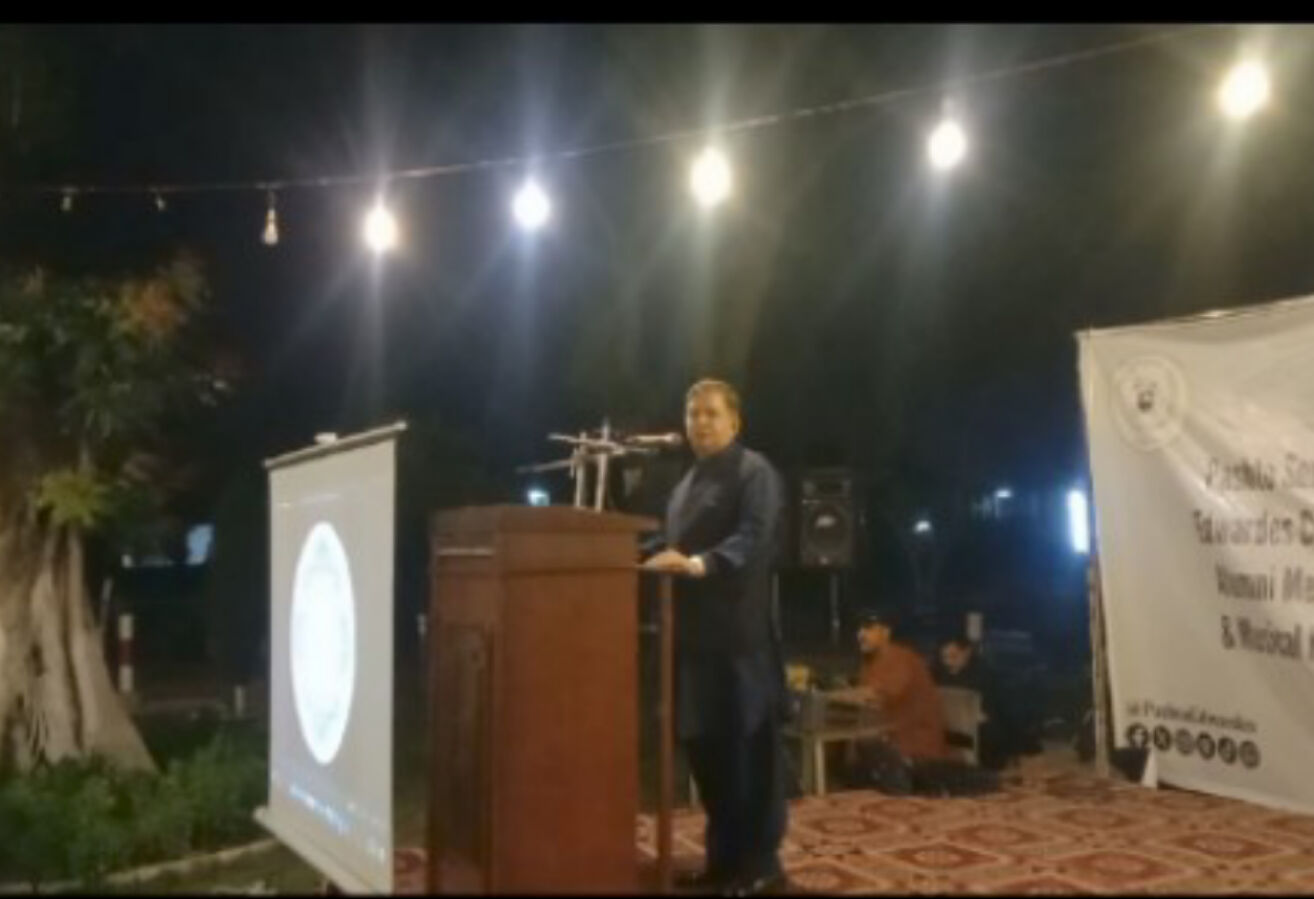Literary Heritage Shines at Edwardes College Musical Event
News Desk
Peshawar: Poets and literary figures not only bring out the ominous aspects but also uncover the hidden secrets of flowers. Their flights of imagination reveal the sorrows of the nightingale and the silence of flowers. With deep insight, they can observe a river in a drop and peer into the future.
These views were expressed by speakers at a musical night held at Edwardes College, Peshawar, on Saturday.
Before the start of the music, the organizer Haider Jan, shedding light on the history, said that the Pakhtu Adabi Society at Edwardes College, Peshawar, was founded in 1920 and has since been organizing literary and cultural activities. The Society recently held a musical evening.
Prof Shujat Ali Khan, the principal of the college, and Prof Sareer stated that the college focuses not only on curricular but also on co-curricular activities.
Dr Syed Akhtar Ali Shah, former Home Secretary and IGP Police (Rtd), and Chairman of the National Think Tank, spoke on the occasion and applauded the efforts of the Society and the college for cultivating an appreciation for literature.
In his reminiscences, he mentioned that the late principal Dr Phil Edmond would often quote John Donne: “No man is an island, entire of itself. Any man’s death diminishes me, because I am involved in mankind. And therefore, never send to know for whom the bell tolls; it tolls for thee.”
By this, he meant that everyone is a part of the whole, an individual part of humanity.
Elaborating on literature and poetry, he said that poets and literary figures not only bring out the ominous but also the hidden secrets of flowers. Their flights of imagination reveal the sorrows of the nightingale and the silence of flowers. Their deep insight can observe a river in a drop and can peer into the future.
Persons of the pen possess the pulse of society and become the medium for expressing its heartbeat through various forms of writing, such as poetry, novels, and short stories. For literature, life is a sacred book of experiences, emotions, and memories, and every author becomes an oracle of Delphi, interpreting the dreams of nature for commoners.
Quoting Mirza Ghalib, Faiz Ahmad Faiz says that a poet’s job is not only to see a river in a droplet but also to show it to the reader. Allama Iqbal observes in the droplet all the hidden secrets of life and nature, noting that it can become a pearl, dew, or a tear, depending on the conditions it experiences.
The literary mind is not just a pacifist painter of nature. Literary personalities have been instrumental in raising a voice against the socio-economic injustices of their times.
Many reform movements and revolutions owe their origins to the might of the pen. Rousseau is closely associated with the French Revolution, and Voltaire served as a one-man demolition squad against the hegemony of the Church in European society. “Uncle Tom’s Cabin” is another example of literature sparking significant social change.

Comments are closed.